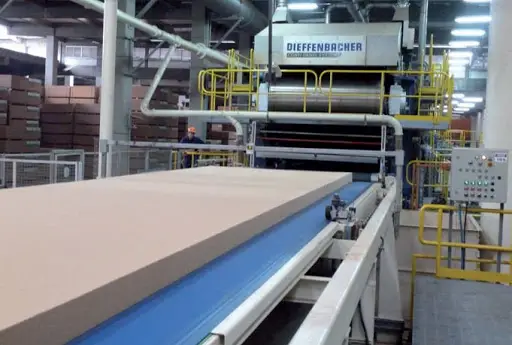North Africa’s first continuous wood-based panel plant is nearing completion at El Tarf, in the far northeast side of Algeria. The complete plant project includes all subsections, ranging from the wood yard through the CPS+ continuous press to the short-cycle laminating line for coating finished boards.
Demonstrating the versatile applications of the CPS+, the plant concept is designed especially for smaller capacities and can be an ideal entry-level system for the wood-based panel market. The materials for the project which include The 6 ft wide, 14.5m long CPS+ are being sourced from Eppingen in the administrative district of Heilbronn in Baden-Württemberg, German.
With an expected production capacity of 250 cubic meters per day, North Africa’s first continuous wood-based panel plant will produce its very first board in August 2020.
Also Read:Construction of Peugeot car manufacturing plant in Algeria nears completion
Project stakeholders
The project is owned by Panneaux d’Algéri a subsidiary of Bigstar. Guelai Mohamed Chiheb, Bigstar CEO said that the need for the development was pushed by the rising demand for MDF boards in Algeria, and the increasing costs of importing the products from other countries.
Bigstar has been active in the wood-based panel trade for over 50 years but it has never produced its own materials but according to the company’s CEO they have been considering producing their own materials for a long time and its collaboration with Dieffenbacher SWPM is a milestone in the realization of their plan.
Dieffenbacher SWPM is a subsidiary of the Dieffenbacher Group, a German-based mechanical engineering, plant systems engineering, and Construction Company. The former is charged with the Panneaux d’Algéri plant project management. This is Dieffenbacher’s first greenfield project on African soil.
However, Another African company, Ghamoud, and Egypt Kuwait Holding subsidiary Nile Wood have orders underway with Dieffenbacher. Ghamoud requested a complete particle board plant in October 2019. The order from Nile Wood dates back in 2018. Locally grown forestry plantations will supply 70% of the raw materials needed at the Nile Wood plant.

Leave a Reply